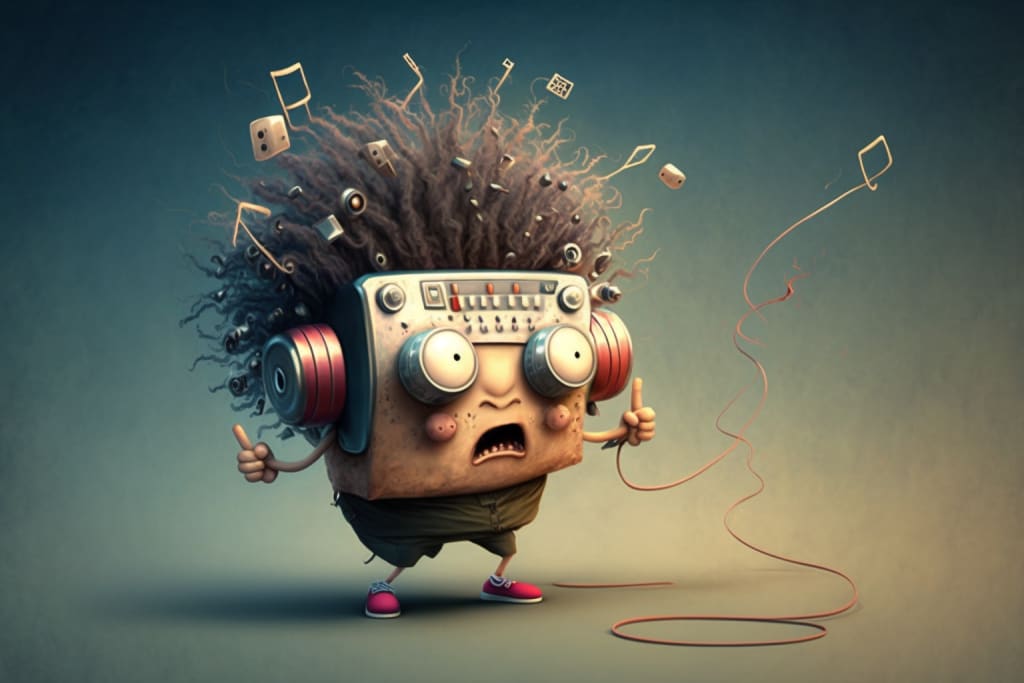Music gets Smarter: AI Spotify...?
How is AI used @ Spotify?

The development of Artificial Intelligence (AI) has come a long way, and its implications on various aspects of our lives are far-reaching. AI is now being used to enhance the experience of using Spotify, one of the world's most popular music streaming services. AI Spotify brings new features that allow users to get more out of their music library and discover new music in exciting ways. AI Spotify uses algorithms to understand user preferences, create personalized playlists, and suggest relevant songs.
This blog post is sponsored by AI-Info.org
AI at Spotify - why?
Spotify has been using AI to help its users discover new music and develop personalized playlists for them. By leveraging machine learning algorithms, the platform is able to analyze user data, recognize trends in their listening habits, and make suggestions based on what it learns. The result is a more tailored experience that allows listeners to explore beyond the typical algorithmic recommendations they've come to expect from other streaming services. AI's ability to identify variations in music styles means it can adapt the playlists it creates according to each individual listener's tastes. In addition, Spotify has also used AI-based technology such as natural language processing (NLP) and voice recognition systems to allow users access their favorite songs with commands like “Hey Spotify” or “Play my favorite song” for an easier and faster way of enjoying music. Finally, Spotify has implemented deep learning models that are able to identify different moods related with songs which helps create personalised playlists based on emotions or activities such as running or studying. This feature provides an even more tailored experience for users of the platform.
Analyzing Music Trends
In recent years, the music industry has been taking advantage of artificial intelligence (AI) to help analyze music trends. By leveraging AI technology, record labels and streaming platforms are able to get a better understanding of what type of music is popular in different geographical areas. AI algorithms can be used to identify patterns in user data that can then be used to create new playlists based on those trends. Additionally, AI can also be used to recommend songs and artists similar to those already liked by users. This allows for an increased level of personalization that appeals directly to individual listeners. Furthermore, AI-powered insights have started becoming more accessible for independent artists as well; allowing them to better understand their fan base and target specific audiences with their content. With this newfound insight into music trends, record labels and streaming platforms are now able to make smarter decisions when it comes to marketing strategies, personalizing playlists and promoting up-and-coming artist discovery.
Generative Adversarial Networks
Generative Adversarial Networks (GANs) are a powerful type of deep learning artificial neural network which can be used to generate new data based on input data. GANs have been widely used in the music industry, such as for generating new musical compositions or remixes. GANs work by having two AI models working against each other: a generator and a discriminator. The generator creates samples from input data, while the discriminator attempts to differentiate between real samples and generated samples. As both models get better at creating and differentiating between real and generated samples, the output generated by GANs becomes more realistic until it is almost indistinguishable from human-created music. Spotify has been implementing GANs to create personalized playlists for its users based on their listening habits. By doing this, it is able to create unique playlists which are tailored specifically for each user's tastes and preferences.
Conclusion: AI's Impact on Music
"Music is humanity's unifying language, and AI Spotify is here to help us share it with the world."
AI has begun to change the music industry in both meaningful and tangible ways. AI algorithms can now help artists create entire albums with a single keyboard. AI-generated songwriting software has been used to generate hits like the Ed Sheeran & Justin Bieber collaboration, “I Don’t Care”. AI can also be used to identify patterns within a song, allowing producers and engineers to make smarter decisions while mixing and mastering tracks. Additionally, AI is being used by streaming services like Spotify to recommend new music based on listening habits, which is helping more users discover new artists they may not have discovered before.
The impact of AI on music creation and consumption cannot be overstated; it has helped revolutionize how musicians write songs, mix tracks, and reach new audiences around the world. As technology continues to evolve at a rapid pace, we can only expect these changes to continue as more people embrace the possibilities that come with leveraging this incredible toolset in the pursuit of creating better music experiences for everyone involved.
About the Creator
Patrick Dihr
I'm a AI enthusiast and interested in all that the future might bring. But I am definitely not blindly relying on AI and that's why I also ask critical questions. The earlier I use the tools the better I am prepared for what is comming.






Comments
There are no comments for this story
Be the first to respond and start the conversation.